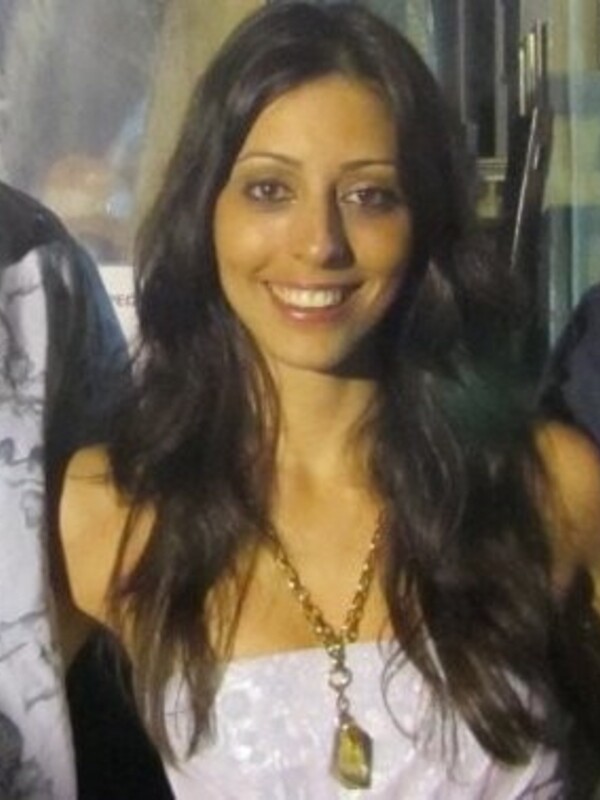Mobile Menu
- Education
- Faculty
- Research
- News & Events
- Divisions
- Equity, Diversity & Inclusion
- About Us

For a long time, Dr. Elina Vlachodimitropoulou Koumoutsea didn’t necessarily see how her primary areas of interest — obstetrics and hematology — might intertwine.
As an undergraduate student at King’s College London, Elina conducted research on iron metabolism and the role of iron in preeclampsia, sparking her initial interest in hematology. Later while pursuing her ob-gyn residency in London, Elina took that interest further and simultaneously completed a PhD in hematology, conducting research into transfusion iron overload, hemoglobinopathies, and blood-cell disorders.
“I struggled for a couple years — people in my day job in obstetrics never understood how the work I was doing in hematology would ever tie in with my day job,” Elina recalls.
“To be honest, I was asking myself the same question.”
It was around that time that Elina discovered the University of Toronto’s Maternal-Fetal Hematology fellowship. It seemed like the perfect fit. Still, she recalls that when she began the program in 2018, she initially felt daunted by the prospect of working alongside trainees with deep experience in hematology, given that she felt her own background was weighted more toward obstetrics.
“In terms of really developing expertise in hematology, I had to go back to basics,” Elina recalls. “When you’re very senior in your job and you choose another speciality, you start from zero. You start off being the worst in the group. I had to go back to the books and do a lot of studying. I had a lot of encouragement from my supervisor and the other residents and I think they enjoyed the multidisciplinary aspect of my own training. Because they knew a lot about their specialty, and I could bring an obstetrics point of view.
“But I had to put in a lot of work before I felt more solid on the hematology side.”
Five years later, such uncertainty in Elina’s training background seems like a distant memory. Not only did she go on to complete that program in 2020, but Elina then immediately began our Department’s two-year Maternal-Fetal Medicine fellowship. She then completed a further six months of Fetal Therapy fellowship, graduating in 2022.
Her career has flourished in the short time since then. Recently, she has won a prestigious early-career award in hematology, being admitted into the American Society of Hematology (ASH)’s Clinical Research Training Institute. A year-long mentorship and education program aiming to produce leaders in clinical hematology research, the program offers a broad education on clinical research methods, research collaborations, and statistical analysis. Elina’s project looks at developing evidence-based recommendations for how long patients who have experienced a blood clot should take blood thinners after having a baby.
In addition to the award, Elina has also landed an academic job, just as she had always hoped for. She’s now a consultant in maternal and fetal medicine with King’s College Hospital, allowing her to divide her time evenly between clinical and academic work. She also holds an academic appointment as Assistant Professor (Status Only) in our Department and at Mount Sinai Hospital, allowing her to continue her research endeavours which have been notably successful in securing substantial grant funding. This has enabled her to scale her research project into a multicentre randomized trial.
That career momentum might be particularly rewarding given that Elina certainly took a leap of faith when she came to U of T to train. She didn’t know anyone in Canada at the time, and prior to hearing about the fellowship, the thought of leaving the U.K. hadn’t occurred to her at all. The pandemic only complicated the situation.
“Leaving at a later stage in your training and moving to a country where you don’t know anybody at all and you can’t visit your family for two years because of COVID so you’re essentially in isolation — that can be quite a challenge,” Elina recalls.
“But I found it was such a welcoming environment and I felt so supported as an individual here. People really took an interest in me and my professional and career development,” she added, singling out a number of our Department’s faculty members and leadership. “I had people to turn to from an educational point of view, from a clinical point of view, from a personal point of view, so I didn’t feel alone at all. I felt very included. I know I have a family in Toronto.
“I can’t say how grateful I am for this experience.”
Coming back to King’s College Hospital now also seems somewhat serendipitous for Elina.
Given that she started her medical-school education there at age 18, returning as faculty has a full-circle feeling.
“I’ve come back to where I started,” says Elina, who is also working on research in maternal hematology exploring sickle-cell disease in pregnancy as well as fetal hematology and fetal therapy.
“It’s quite unusual to have a 50 per cent clinical, 50 per cent academic job in the U.K., and I feel very fortunate. It was the only way I could move my research forward. On the clinical side, I do fetal medicine, we have specialized clinics for women with blood disorders, and I do the labour ward.”
